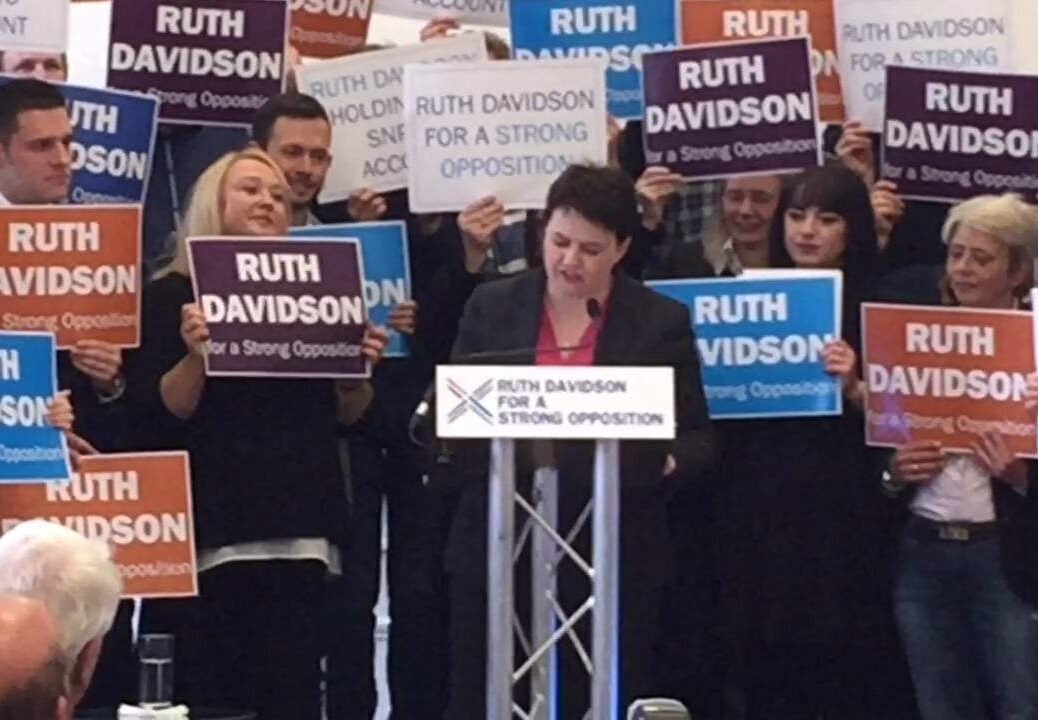
The Union’s stock is rising thanks in particular to Tory success north of the border under Ruth Davidson’s leadership, writes Olenka Hamilton
Far from ideal it undoubtedly is, but there is a very important silver – or rather, red, white and blue – lining to the hung parliament verdict delivered by the people this week.
Huge wins for the Tories and important gains by Labour and Liberal Democrats in Scotland, coupled with crushing losses for the SNP, send a strong signal to the rest of the UK and the world that Scotland wants to stay part of the United Kingdom. At 310 years, the union is still intact.
Indeed, if Britain were a company and the general election were its AGM, its stock would be rising through the roof as we speak.
The Tories in Scotland have managed to secure 13 seats in this election, the party’s best performance since 1983. Gone are the days when people joked that there were more pandas in Scotland than Tory MPs. Equally, gone are the days of Scottish independence referendums, we hope, with success for Labour who won seven seats and the Lib Dems four, both up from one seat each in 2015.
Meanwhile to the joy of unionists across the UK, the SNP has suffered a crushing defeat, having lost more than a third of its seats. The pro-independence party led by Nicola Sturgeon won 35 out of 59 seats, compared to the 56 they won in 2015. And even more cause for celebration is the defeat of the seemingly eternal godfather of Scottish independence Alex Salmond who lost his seat in Gordon, while the SNP’s Westminster leader Angus Robertson lost his seat in Moray. The loss of the silver-tongued Salmond, who has been the head of the Scottish nationalist cause since 1987 and was Scotland’s first minister from 2007 to 2014, is a huge blow to the SNP.
According to one commentator, who spent the week before the election up in Scotland, 80 per cent of doorstep conversations centred on the question of independence. The result is more a tribute to Ruth Davidson, the down-to-earth, charismatic leader of the Scottish Tories, who is credited with reenergising the party up north, than to Theresa May, the embattled prime minister.
The result, which saw the Tories go from one to 13 seats, is a triumph for the United Kingdom. And even the SNP admits that the issue of a second referendum on Scottish independence had played a ‘significant’ role in the result, with deputy leader John Swinney promising to ‘take time and care to reflect on the outcome.’
And it’s not just good news for the UK, it’s also excellent news for Scotland whose economy has been stagnating under the uncertainty of a referendum for a number of years, growing by 0.7 per cent last year, compared to the rest of the UK which grew by 2.4 per cent. Its financial services industry, which is tightly bound up with UK regulation and comprises 7 per cent of its GDP will be celebrating, too.
But while the union’s stock is rising, there is still important work to be done: the SNP still has the majority of Scotland’s 59 Westminster seats. It will take all of Ruth Davidson and the Scottish Labour leader Kezia Dugdale charms to wrest those from the grasp of Nicola Sturgeon, but this election, notwithstanding the broader outcome, is a good start.
Olenka Hamilton is staff writer at Spear’s






